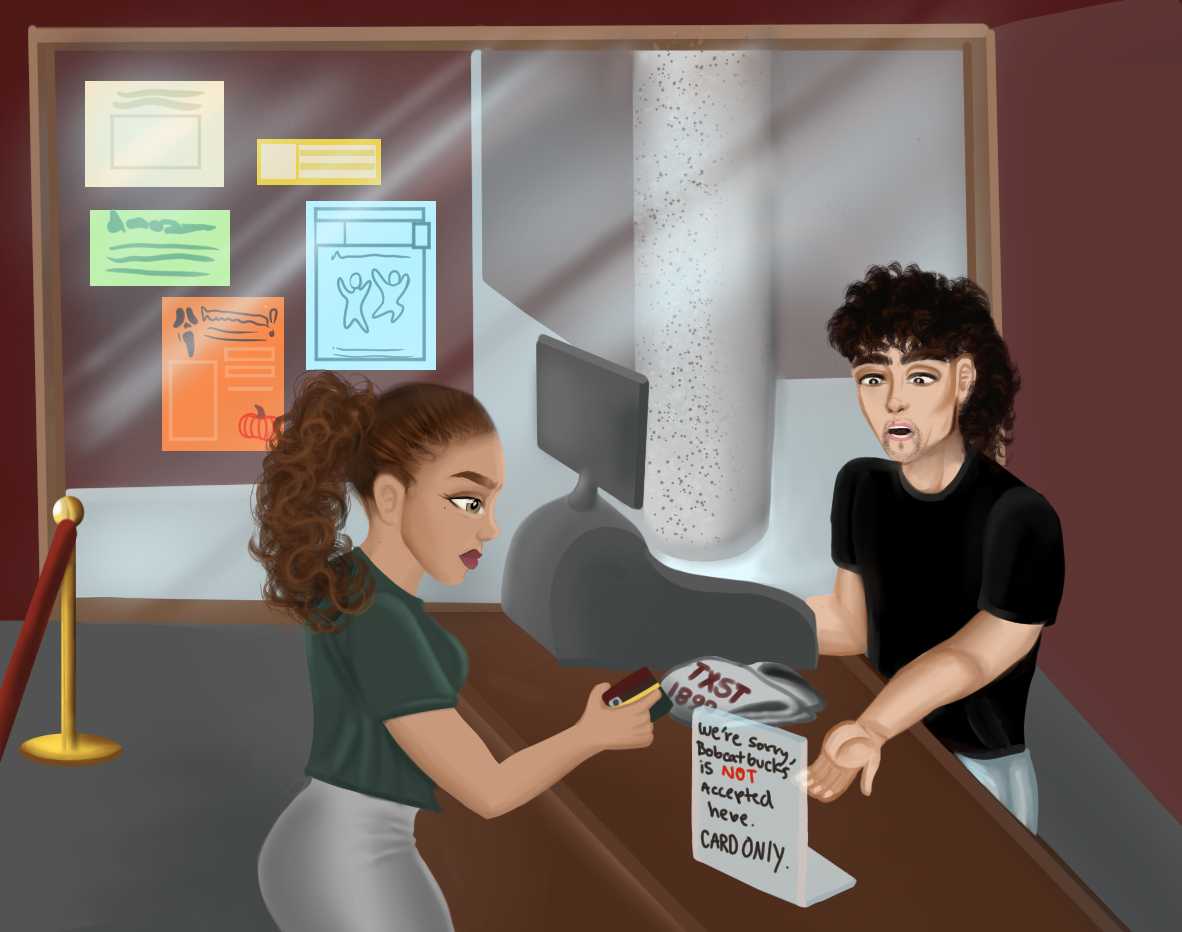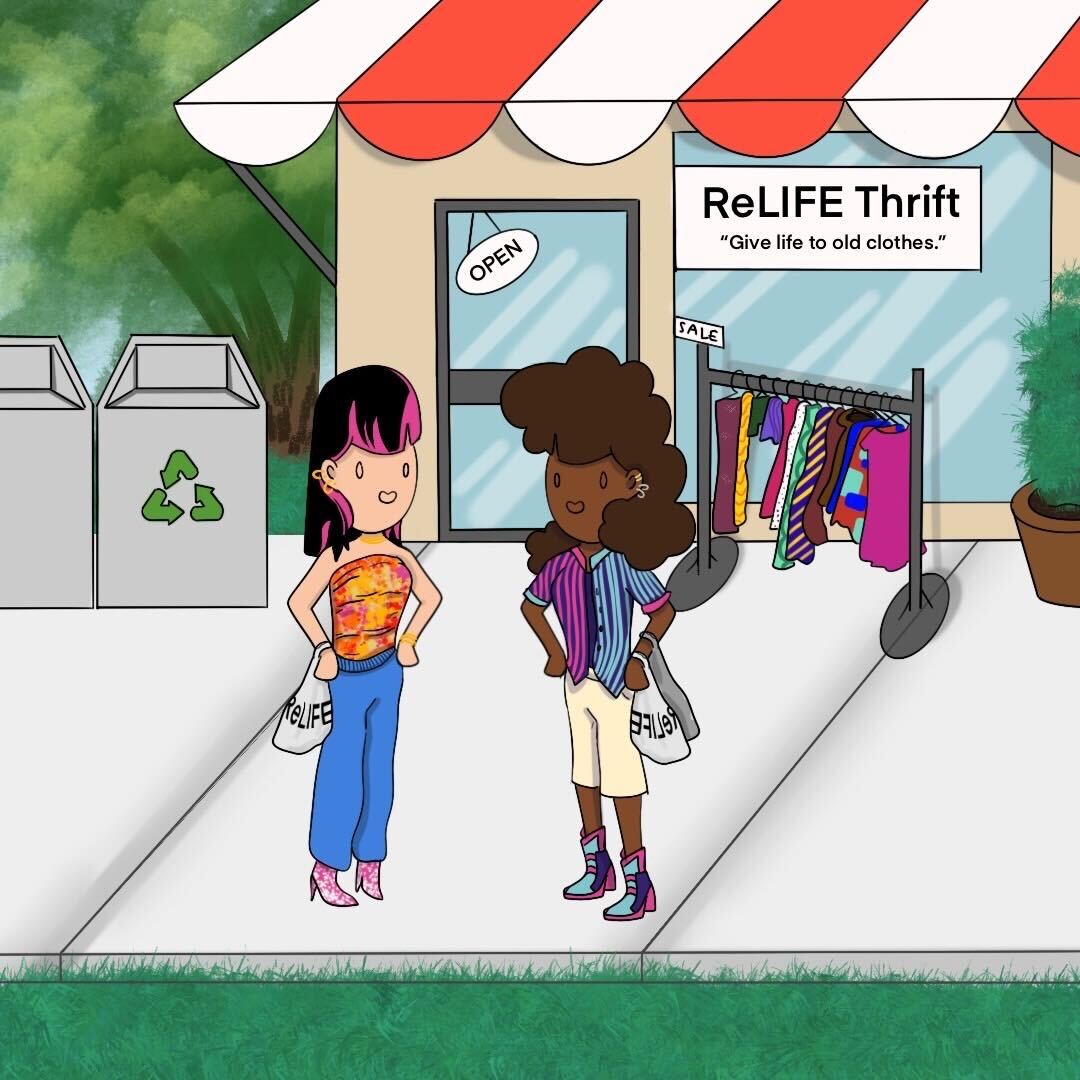In July, The Payment Choice Act passed the U.S. House of Representatives, mandating businesses must accept cash payments of under $2,000. This act came into existence due to more and more businesses across the U.S. turning to a cashless system because of COVID-19.
Not only are businesses across the country choosing to go cashless, but so are colleges.
While Texas State has yet to decide to go all in on becoming a cashless campus, signs indicate that it is only a matter of time until it does.
Cash must remain an acceptable payment option by businesses on and off college campuses, including Texas State, as without it, the estimated 59% of the American population that still prefers to pay with cash will become disenfranchised, and the number of consumers businesses can sell to will decrease.
Texas State’s campus is home to numerous businesses, most of which are eateries that offer students a variety of choices, whether it be dining halls or well-known fast-food establishments.
These places accept payment options such as credit and debit cards, Bobcat Bucks and Dining Dollars. These payments are transacted via mobile and do not require an exchange between the customer and the cashier. However, cash, the once-only form of acceptable payment, is not accepted at certain spots on Texas State’s campus.
The Dunkin’ Donuts and Panda Express do not have a cashier behind a register. But instead, two or three self-order kiosk machines have removed cash registers altogether.
Kiosks have skyrocketed in popularity over the last few years as, according to studies, the kiosk market estimates to hit nearly $31 billion by 2024.
McDonald’s was the first big-name restaurant or fast-food chain to begin using kiosks in 2015. However, according to Financial Post, McDonald’s sales dipped after going to kiosks over registers. Only some customers can operate the machines because for others, cash is their only payment source. In addition, an estimated 8.4 million American households still need a bank account or debit card, which would prevent them from being able to place an order at roughly 9,000 McDonald’s locations across the U.S.
The same is happening at Texas State. Texas State’s campus establishments with kiosks in place of cash registers have a strict no-cash policy, as these machines are not programmed to accept cash, forcing students to pay with one of the four options mentioned earlier. Students who wish to pay with physical money, whether by choice or obligation, are denied service at these locations.
Another negative with the kiosk system is that they take away job opportunities from people, which is profitable for businesses but hurts both a percentage of consumers and the working class.
The Dunkin’ Donuts and Panda Express at Texas State choosing to transition to a strictly cashless system and do away with registers in favor of kiosks offer fewer job opportunities to both student workers and regular employees.
While kiosks can be quicker and more convenient, they deprive students of possible jobs and services at certain establishments, which is why they should offer kiosks and cashiers.
Bobcats Bucks are accepted everywhere at Texas State and at some San Marcos establishments. If off-campus locations are willing to accept these payments, then there is no reason on-campus locations should be unwilling to accept cash.
As for eating options other than fast-food restaurants for students, Texas State has two dining halls on its campus, one being the Jones Dining Center. As of 2019, Jones is strictly cashless.
According to John Root, the director of Auxiliary Services at Texas State, Jones no longer accepts cash because of the growing industry trend over the past several years.
Root said Texas State decided to make Jones cashless because it felt the students were more used to cashier-less systems and that it was time to try kiosks in one of the dining centers.
It is understandable why colleges favor kiosks over registers and push for mobile payments, as most of their student bodies prefer to make their payments that way. However, cash should remain a viable option for the estimated 14%, according to CNBC, of those who still prefer to pay with it for their weekly transactions.
The usage of physical currency has become a rarity in society over recent years due to the vast majority of people choosing credit and debit cards over paper bills and coins.
According to studies from a blog posted on Clover, roughly 30% of American citizens do not carry any cash on them, and 76% who do only keep $50 or less in their wallets.
American consumers, particularly younger generations, prefer the simple swipe or tap of a plastic card rather than the hand-to-hand exchange of money. As a result, this payment method is slowly beginning to head toward the brink of extinction.
For more than 200 years, paper cash has been at the heart of the American economy. However, it is apparent that credit cards have replaced cash as the number one payment choice and is the future of the American economy, and understandably so; yet businesses should always accept the option of cash.
– David Cuevas is a journalism junior
The University Star welcomes Letters to the Editor from its readers. All submissions are reviewed and considered by the Editor-in-Chief and Opinions Editor for publication. Not all letters are guaranteed for publication.
Opinion: Cash should still be accepted everywhere on campus
David Cuevas, Opinions Contributor
November 7, 2022
0
Donate to The University Star
Your donation will support the student journalists of Texas State University. Your contribution will allow us to purchase equipment and cover our annual website hosting costs.
More to Discover











